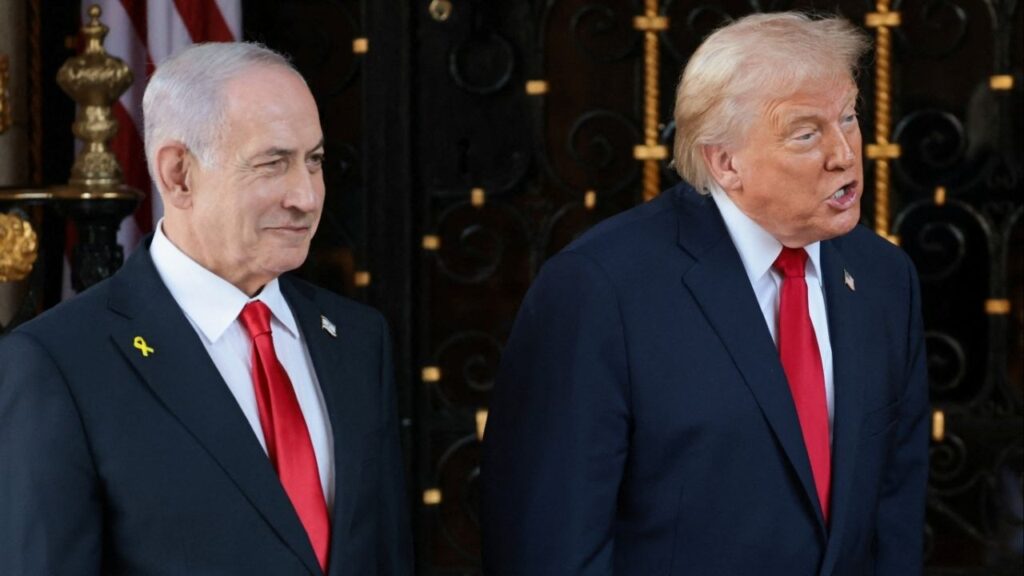Share
WASHINGTON — House lawmakers are returning to Washington to assess a budget and debt deal between Democratic House Speaker Nancy Pelosi and President Donald Trump, but there’s no evidence of any last-gasp drama that could upset the hard-won compromise.
Reaction to the two-year deal, which would enable the government’s debt-fueled spending increases to continue through late 2021, broke along predictable lines. Washington’s pragmatic class is supporting it, sometimes reluctantly, while lawmakers on the right are the main voices of opposition.
The bill, and a $1.37 trillion follow-up round of spending bills this fall, would eliminate any possibility of a repeat government shutdown or a first-ever default on U.S. obligations — or politically exhausting battles that contain risk for both sides.
The deal, announced on Monday by Trump on Twitter and in a statement by Pelosi and Senate Democratic leader Chuck Schumer, will restore the government’s ability to borrow to pay its bills past next year’s elections and build upon recent large budget gains for the Pentagon and domestic agencies.
“I am pleased to announce that a deal has been struck,” Trump tweeted, saying there will be no “poison pills” added to follow-up legislation. “This was a real compromise in order to give another big victory to our Great Military and Vets!”
I am pleased to announce that a deal has been struck with Senate Majority Leader Mitch McConnell, Senate Minority Leader Chuck Schumer, Speaker of the House Nancy Pelosi, and House Minority Leader Kevin McCarthy – on a two-year Budget and Debt Ceiling, with no poison pills….
— Donald J. Trump (@realDonaldTrump) July 22, 2019
The agreement is on a broad outline for $1.37 trillion in agency spending next year and slightly more in fiscal 2021. It would deliver wins to lawmakers seeking to break Washington’s unproductive logjam and at least perform their core job of writing the nation’s so-called discretionary budget.
Top House GOP Leaders Stand Behind the Deal
Both Schumer and Senate Majority Leader Mitch McConnell, R-Ky., a key behind-the-scenes architect of the measure, swung forcefully behind it Tuesday in back-to-back floor speeches.
“The agreement secures the most important priority of the Republican conference,” McConnell said. “Securing the resources we need to provide for the common defense. This deal does it.”
Senior Senate Democrats emerged from a Tuesday morning meeting with Schumer supporting the bill, with some reluctance in a few cases.
“This is pragmatic and logical and good for the country and we should support it even though Donald Trump likes it,” said Sen. Brian Schatz, D-Hawaii. “It’s an imperfect vehicle but that’s the way you get a bipartisan agreement with the president.”
Top House GOP leaders stand behind the deal as a flawed but achievable outcome of a government in which Pelosi wields considerable power.
“While this deal is not perfect, compromise is necessary in divided government,” said House Minority Leader Kevin McCarthy, R-Calif.
At issue are two separate but pressing items on Washington’s must-do agenda: increasing the debt limit to avert a first default on U.S. payments and acting to set overall spending limits and prevent $125 billion in automatic spending cuts from hitting the Pentagon and domestic agencies with 10% cuts starting in January.
Democratic Progressives Sound Unenthusiastic
However, the deal also comes as budget deficits are rising to $1 trillion levels — requiring the government to borrow a quarter for every dollar it spends — despite the thriving economy and three rounds of annual Trump budget proposals promising to crack down on the domestic programs that Pelosi is successfully defending now. It ignores warnings from deficit and debt scolds who say the nation’s fiscal future is unsustainable and will eventually drag down the economy.
The head of a large group of House GOP conservatives swung against the deal and many rank-and-file Republicans appear likely to oppose it despite Trump’s endorsement.
“No new controls are put in place to constrain runaway spending, and a two-year suspension on the debt limit simply adds fuel to the fire,” said Republican Study Committee Chairman Mike Johnson, R-La. “With more than $22 trillion in debt, we simply cannot afford deals like this one.”
Democratic progressives sound unenthusiastic but don’t seem likely to try to scuttle the agreement.
“Notice how whenever we pursue large spending increases + tax cuts for corporations, contractors & the connected, it’s treated as business as usual,” tweeted Rep. Alexandria Ocasio-Cortez, D-N.Y.
But a respected, pragmatic voice on the left, Robert Greenstein of the Center for Budget and Policy Priorities, issued a detailed statement supporting the measure for eliminating “threats both of an unprecedented U.S. government default on its debt obligations and of deep, damaging budget cuts.”
The Pact Would Defuse the Debt Limit Issue for Two Years
Democrats promise to not try to add new policy provisions to the measures that are deemed “poison pills,” which may incite opposition from progressives determined to improve overcrowded, often unsanitary conditions at facilities that house and care for migrants arriving at the U.S.-Mexico border. But Pelosi has many respected allies on the powerful Appropriations Committee, where Democrats are aching to put their stamp on the annual spending bills.
The pact would defuse the debt limit issue for two years, meaning as a practical matter that Trump or his Democratic successor would not have to confront the politically difficult issue until late 2021.
Washington’s arcane budget rules give each side a way to paint the numbers favorably. Generally speaking, the deal would lock in place big increases won by both sides in a 2018 pact driven by the demands of GOP defense hawks and award future increases consistent with low inflation.
By one measure, the price tag for the legislation posts at $320 billion. But more than two-thirds of that is to simply maintain current spending levels rather than fall prey to automatic spending cuts known as sequestration. Another measure is $103 billion, spread over two years to Pentagon and domestic accounts, to permit modest budget hikes of 3 or 4 percentage points above current levels.
Pelosi won a little more money for domestic programs than defense, but it would be eaten up by large new costs for the census and new private sector health programs for veterans.
The measure would first advance through the House this week and win the Senate’s endorsement next week before Congress takes its annual August recess. Legislation to prevent a government shutdown would follow in September.



















